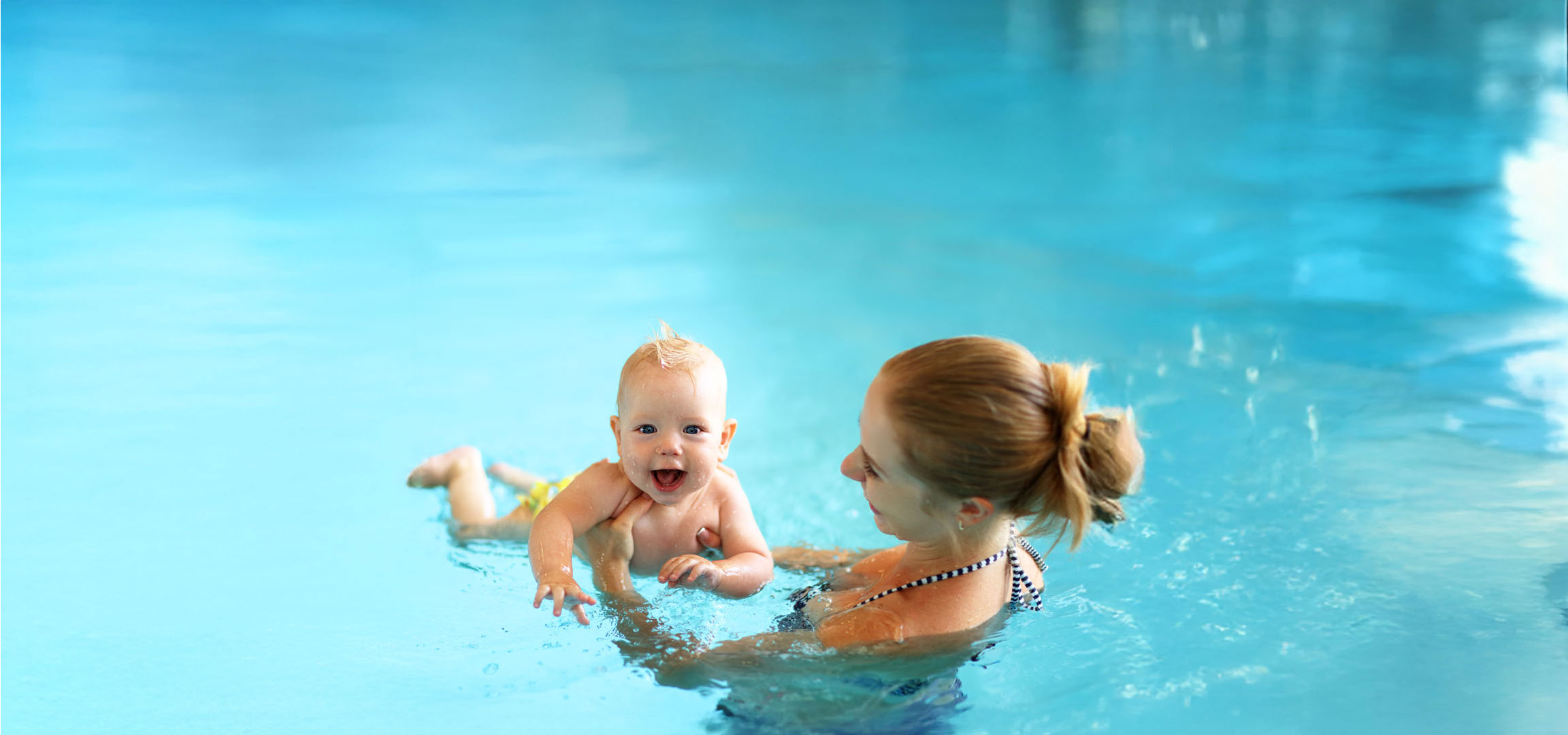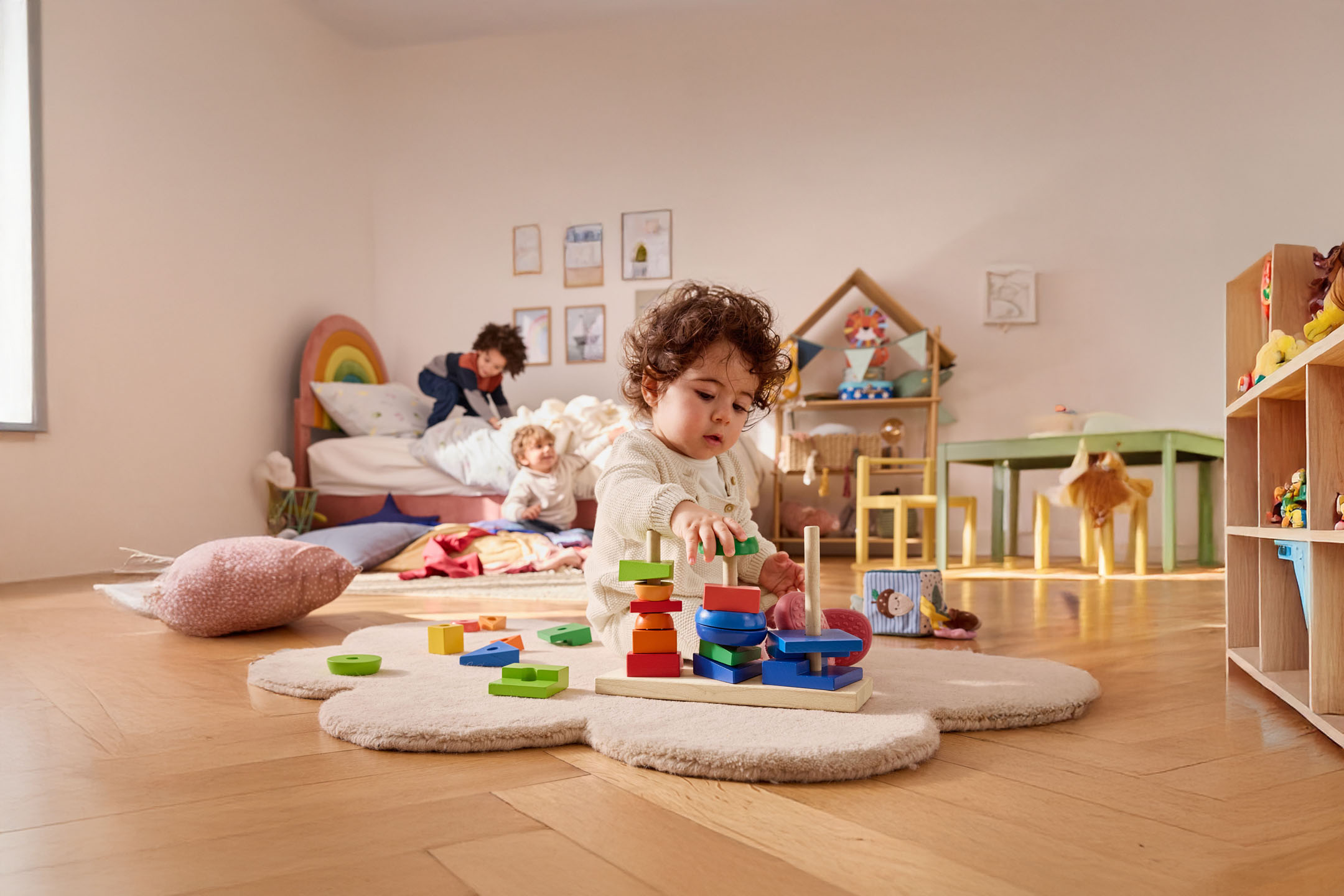Fancy baby swimming? - When you can start with it
Baby swimming strengthens the bond between parent and child. In most cases, it is great fun for the little ones and has a positive effect on their motor and cognitive abilities. As a rule, certified aqua educators offer baby swimming courses. Of course, it is important to find the right time for unadulterated bathing fun. When considering the earliest time you should start swimming, you can use some recommendations on age and physical development as a guide.
Baby swimming - the most important tips and recommendations
What does baby swimming mean?
Baby swimming or infant swimming refers to special courses in which parents and children play and move together in the water. From the 1960s onwards, this form of water aerobics has become increasingly popular, as it promotes the motor skills of the little ones and has a positive effect on the regression of the mother after birth. If babies are held in the prone position, many can even make paddling movements. However, baby swimming is not to be understood as swimming lessons for infants.
Who offers swimming lessons for babies and how much do they cost?
You can usually find similar offers at any larger swimming pool. Swimming lessons for babies are mainly offered by certified aquafitness instructors. This has the great advantage that you learn the basic movements under professional guidance. The cost depends on many things and varies from pool to pool. In some cases, some insurance companies may cover the costs of swimming lessons for babies.
Register for baby swimming or wait?
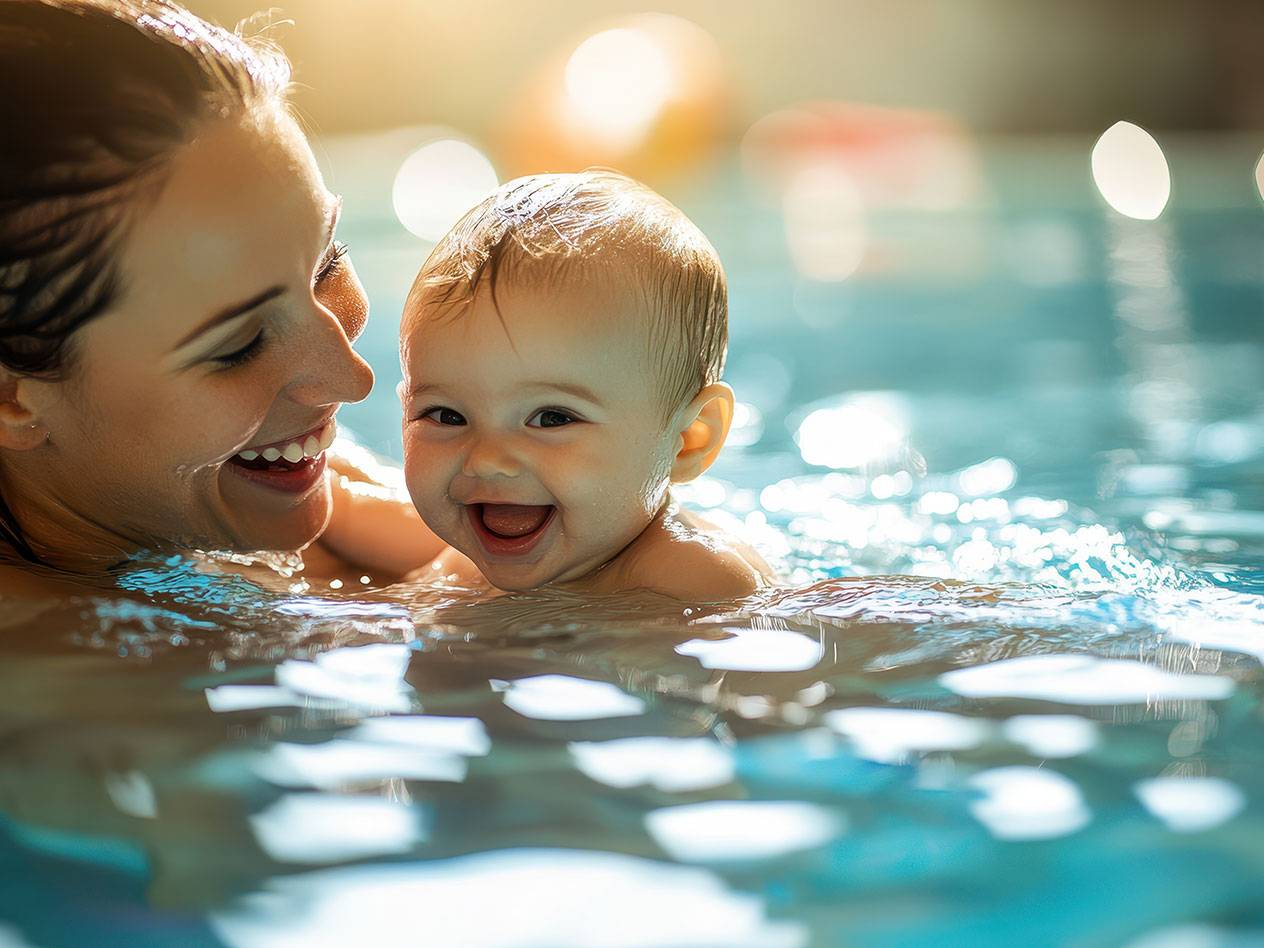
Many babies love the water. Researchers believe that it reminds them of the time in the womb. And as we adults know: water has a calming and beneficial effect. However, there are also reasons that speak against baby swimming. Your baby could be sensitive to chlorine or catch a cold. You can make it easier for you to answer the question “Baby swimming - yes or no?” By weighing the advantages and disadvantages according to your personal feelings.
Baby swimming - yes or no?
Advantages
- promotes the baby's motor and cognitive abilities
- is fun for the baby
- strengthens the bond between mother and child
- Due to the conditions such as weightlessness, the baby can try out new movements in a playful way
- Early experience with water increases confidence in later learning to swim
- promotes the regression of the mother
- enables parents and child to make new social contacts
Cons
- Chlorine-contaminated water can cause allergies
- Babies swallow water and pick up bacteria and germs B. gastrointestinal infections, respiratory diseases or middle ear infections
- Critics argue that in many courses babies are turned into passive “objects” that are allowed to gain little active self-awareness in the water
Baby swimming - when are we allowed to swim?
When exactly you and your little one should start baby swimming depends on various factors. These include, for example, physical maturity and whether your baby has an increased risk of allergies. Temperament also plays an important role - every baby reacts differently to so much water around them.
Recommended period: between the fourth and sixth month.
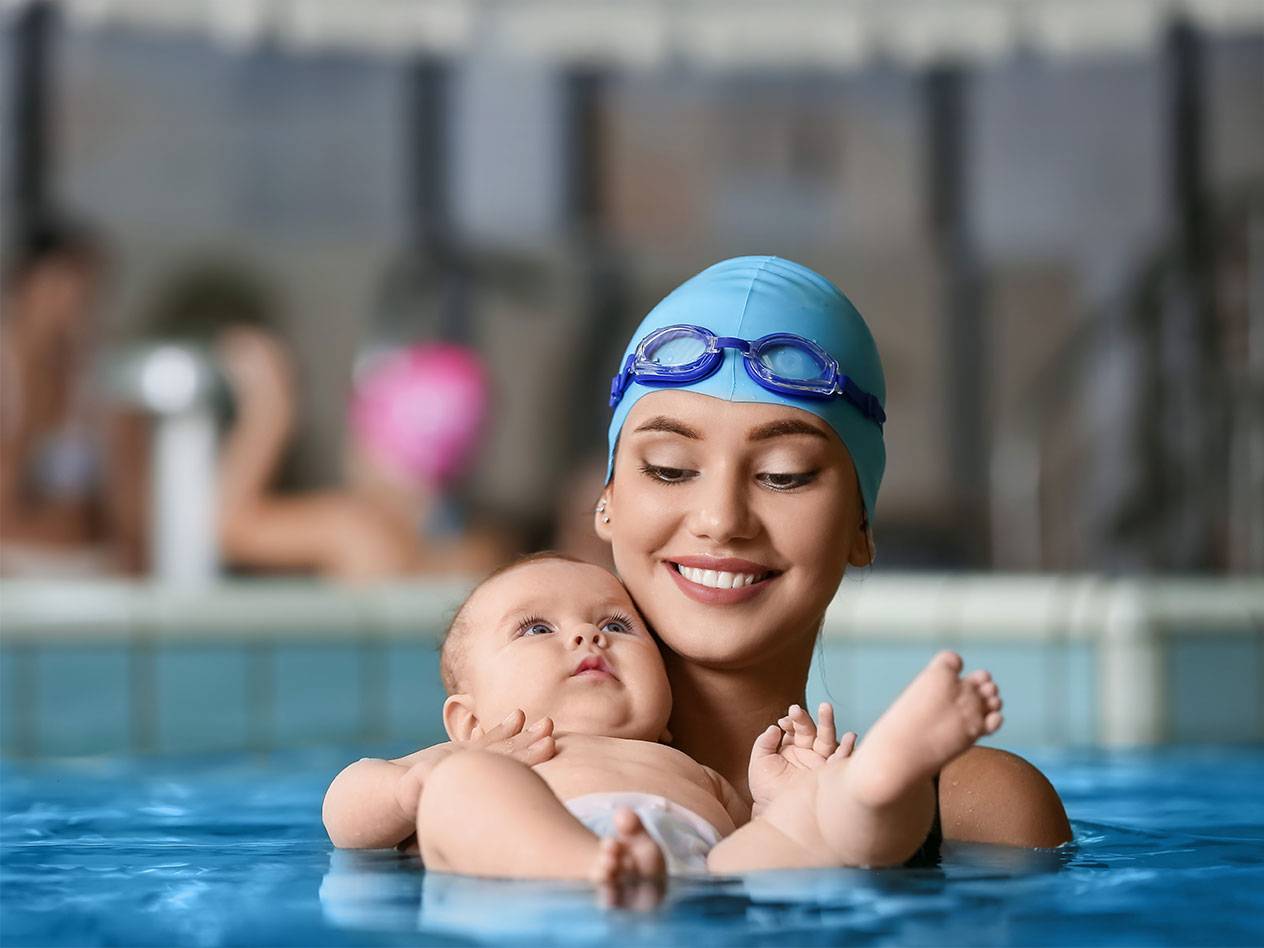
Does your baby enjoy bathing at home? This is a good prerequisite for baby swimming in the large pool. However, you should refrain from bathing in public pools until the fourth month. Most parents start the courses between the fourth and sixth months of their baby. Then the baby can regulate its body temperature to a certain extent. However, this differs from child to child and of course also depends on whether your baby was born regularly or as a premature baby. If in doubt, seek advice from your pediatrician or the supervising midwife.
Slowly get used to the temperature difference
Slowly get your baby used to the cooler water temperature found in most swimming pools by letting the bath water at home get cooler from time to time.
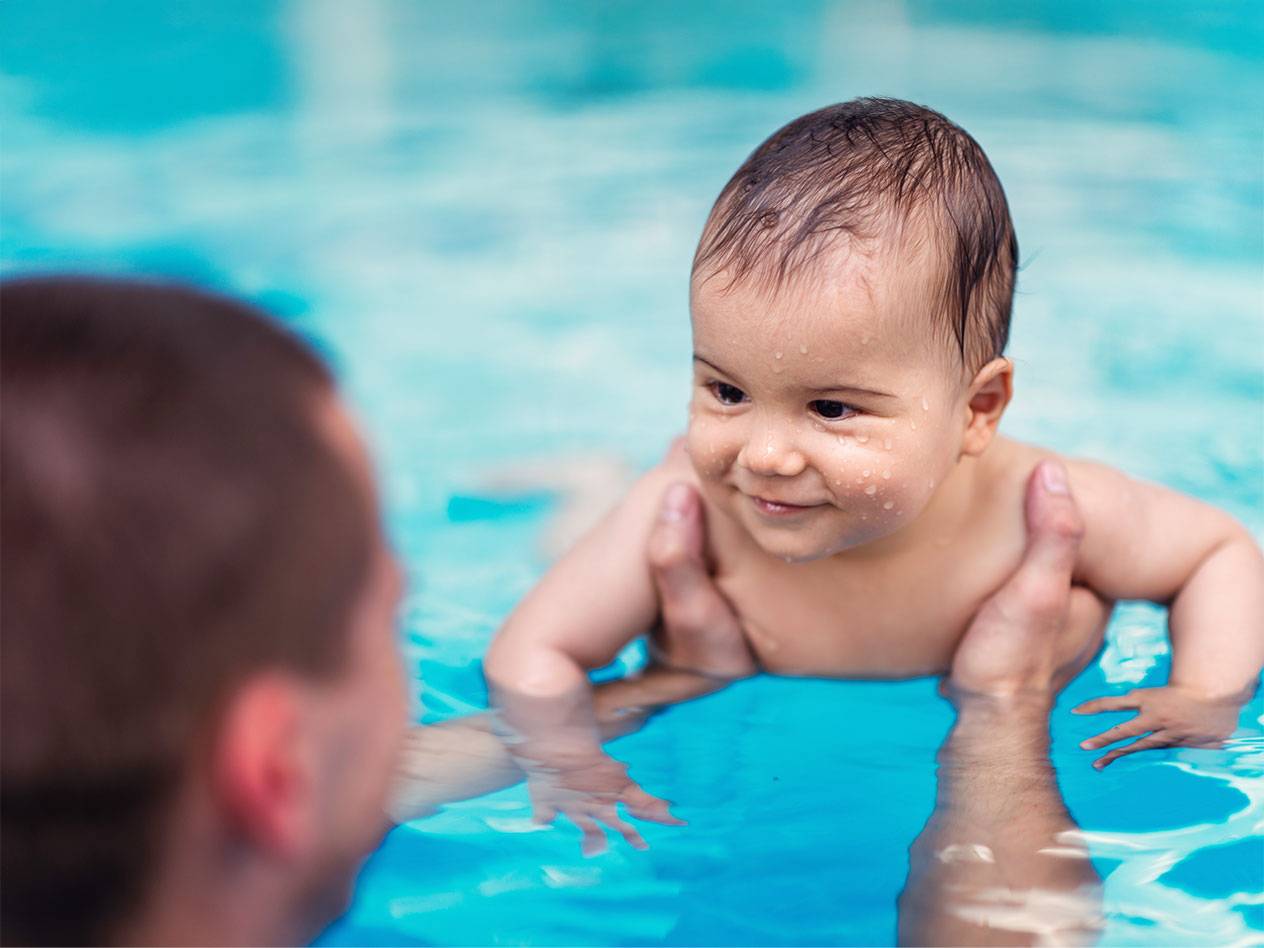
Physical development as a further factor
Babies between four and six months become increasingly active and can usually hold their head up for a short time in the prone position. This is an important prerequisite for you to be able to use positions in baby swimming where your baby lies on its stomach on the water. In most cases, instructors will recommend that you keep switching between laying face upwards and prone position so that it doesn't become too strenuous for your little one.

When to consult the pediatrician
Under certain circumstances, chlorine can promote allergies. If your baby has an allergy or if you or your partner have allergies or even asthma, it is best to ask your pediatrician when they recommend baby swimming. Since baby swimming can promote the development of infections, especially gastrointestinal infections, the Standing Vaccination Commission (STIKO) recommends vaccinating babies against rotavirus at the latest 14 days before the start of baby swimming.
Equipment for baby swimming - checklist
- Swim diapers in the right size
- Hooded towel
- Possibly bath toys
- Porridge meal / breastfeeding meal / bottle after swimming
- Bathrobe
- mild body lotion for dry skin after bathing
- After consultation with the trainer: swimming aids for babies
